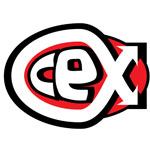How to sell DVDs, CDs and games online
Reckon you've got the world's largest barely-used DVD collection? Perhaps it's time you started selling your old CDs, DVDs, games and books for cash...

Most of us will admit to having a stash of old books, CDs, DVDs or games that, if we're totally honest, we're not going to watch or use ever again.
It makes no sense to keep hold of stuff you don't use, especially if you need some cash. The good news is that the unwanted remnants of your collection can be transferred into cold, hard cash.
We're here to show you how to sell them for as much money as possible.
What's in this guide?
How to sell your old stuff online
As you can probably guess, the easiest way to sell your unwanted belongings is online. In fact, there are lots of trade-in sites waiting to take your junk and fill your palms with gold (or pennies, depending on what condition they're in).
While every site differs in how they do things, it's usually a case of entering your product barcode, ISBN or product name to get an instant quote. Better still, you can scan items with your phone if you use a site with an app.
You might find that some sites have a minimum value or number of items, meaning you'll need to scour the room for extra items to sell if you haven't met the minimum amount.
If you're happy with the quote, simply accept the offer, fill in your details and send your items off in the post. In most cases, the postage is free, but double-check this first or you could end up forking out more on postage than you'll earn from selling your stuff.
Then comes the fun bit: getting paid! Most sites are pretty quick, and once they've received your items, your money should be with you the following day.
How much can you earn from selling things online?

Credit: Yevgen Kravchenko, kamui29, Bell Photography 423 – Shutterstock
Is it worth selling CDs and DVDs? Depending on what you're selling, and where you're selling it, you can expect to get about 8p – £1 for CDs, £1.50 for DVDs and up to £15 for video games.
While it's possible to earn a bit more by selling offline, trade-in sites are quick, convenient and hassle-free.
To get as much money for your old things as possible, it's best to shop around. Different trade-in sites often give different quotes for the same items.
And remember that the price you're offered will be based on demand. If you're selling textbooks, for example, you should sell them as soon as possible to make sure the course is still running – and ideally just before term starts.
You may find that some sites will offer you (what looks like) a better deal if you accept a voucher instead of cash. But, before accepting this, it's worth thinking about whether you want your spending to be limited to whichever shop the voucher is for.
Where to sell DVDs, CDs, games and books online
These are the best places to sell DVDs, CDs, games and books online:
-
musicMagpie
Accepts: CDs, DVDs, Books and Games.
musicMagpie is one of the most well-known and easy-to-use trade-in sites. It's a great place to sell DVDs, CDs, books, games and tech.
They'll also give you a price for your phones and gadgets (although bear in mind, you might fare better selling these on eBay).
The prices might not always be the best going, but they're still worth checking – and, crucially, they offer free postage.
They also have an app that comes with a barcode scanner.
You'll need a minimum valuation of £5 to sell with them. After they finish the checks, payment is made by bank transfer or PayPal on the same day.
-
CeX
Accepts: CDs, DVDs and Games.
If you're looking for musicMagpie alternatives, CeX could be a great option. CeX is the only site on this list to also boast a presence on the high street, so if you think you'd get a better price for your items by haggling in person, pay them a visit.
They buy old CDs, DVDs, Blu-rays and games, as well as pretty much anything electronic. However, the only way to sell DVDs to them is to use their drop-and-go service. Once accepted, they'll pay into your bank account or offer a CeX voucher.
Similar to musicMagpie, you'll need a minimum valuation of £5 when selling online. However, if you pop into a store, you can get cash straight away.
-
WeBuyBooks
Accepts: CDs, DVDs, Books and Games.
Despite the name, WeBuyBooks will also buy your old CDs, films and games, and often ranks pretty well for valuations (although we think it's time they rebranded the name!).
Enter your product details into the search tool and they'll provide you with an instant valuation. Once your items have a combined value of £5 or more, you can send them off to their warehouse (and they'll pay for postage). If you sell over £25 worth of items, they'll give you an additional 5% bonus.
They're pretty quick with payment too – they promise to have your cash processed and in your account the day after they receive your items.
Payment can be made via PayPal, cheque or bank transfer, and they also offer rewards for regular sellers.
-
GameXchange
Accepts: DVDs and Games.
If you're particularly stocked up with games you haven't played in years and feel it's time to upgrade your collection, a visit to GameXchange is your best shout.
You can decide to trade in your games for store credit, or sell your games and receive payment through PayPal or bank transfer.
Along with games, GameXchange also lets you trade in consoles, DVDs and tech.
G also pay for you to send your goods to them for free via their Royal Mail Tracked service.
-
eBay
Accepts: CDs, DVDs, Books and Games.
Using an online auction site like eBay can be a slower process, so this may not be the best choice for those who want to sell quickly.
However, if you end up with a few keen beans who are ready to fight over what you have to offer, you could end up earning a good sum for the things you sell.
It will take a bit more time to set up your listing and research how much to charge. Plus, you'll have to pay a commission on your sale.
For all details on how to get started, check out our guide to selling on eBay like a pro.
-
Amazon
Accepts: CDs, DVDs, Books and Games.
Selling your unwanted goods is one of the easiest ways to make money on Amazon.
You can't always get the best prices for DVDs and other items on there, but as the site has a massive reach, you'll likely be able to quickly sell items you've not been able to offload elsewhere.
However, there are a few charges involved that are worth being aware of. Amazon charges include a £0.75 fee per item sold and an additional selling fee, depending on the type of product you sell.
-
Ziffit
Accepts: CDs, Books, Games and DVDs.
Similar to CeX and musicMagpie, Ziffit buys all your old media.
You'll need either £5 worth of items or 10 items to complete a trade-off. Scan the barcode via their app and they'll tell you straight away how much you could bag.
If your items weigh less than 9kg (which they'll work out for you after you scan the barcode), you can send your items through one of Ziffit's collection shops completely free of charge.
Packages weighing over 9kg can be picked up via a courier collection service.
You'll receive your money via bank transfer or PayPal. Make sure you also sign up for their newsletters to get promos and voucher codes.
Where to sell your old things offline

Whilst trade-in sites are often the easiest option to go for, they certainly aren't your only options. You could even get a better payout if you invest a little more time and effort in the offline world.
Here are the best ways to sell your belongings offline:
-
Car boot sales
Often massively underrated and underused as a way of making money, car boot sales are also a lot of fun.
If you've got a lot of stuff to sell, keep an eye on your local paper or look online to find car boot sales near you. Don't have enough stuff? Feel free to club together with friends.
You'll usually have to pay around a fiver for a pitch, but you'll get instant cash in your hand and the benefit of impulse buys, along with the opportunity to haggle.
-
Advertisement boards
You can get a lot of guaranteed views by posting about your things for sale on advertisement boards. Plus, they're often free to use.
If your prices are competitive and you can show your items are in good condition (photos always help), you're likely to get a fair bit of interest.
Inserting 'O.N.O.' ('Or Nearest Offer') beside your selling price will encourage people to get in contact if they're put off by your price.
The best places to scout for decent noticeboards are at your university, libraries, community centres and in shop windows (although some will ask you to pay for this).
-
Second-hand shops
If you can't be bothered with all the hassle of manning a sale stall, and aren't keen on any of the sites mentioned above, there are loads of second-hand shops that will buy your media gold in bulk.
If you have a large collection, particularly of books, a shop employee might even pop over to your house and give you a quote for the lot.
However, this minimum effort method will be paid for through the quote they offer, as unless you have some seriously in-demand goodies, you likely won't squeeze much out of them.
This option is best kept for those who want a large number of things shifted ASAP, caring less about the price (so not likely to be the first option for cash-poor students!).
Sold everything you own, and still hungry for more cash? We have loads more ideas to help you make money as a student.















